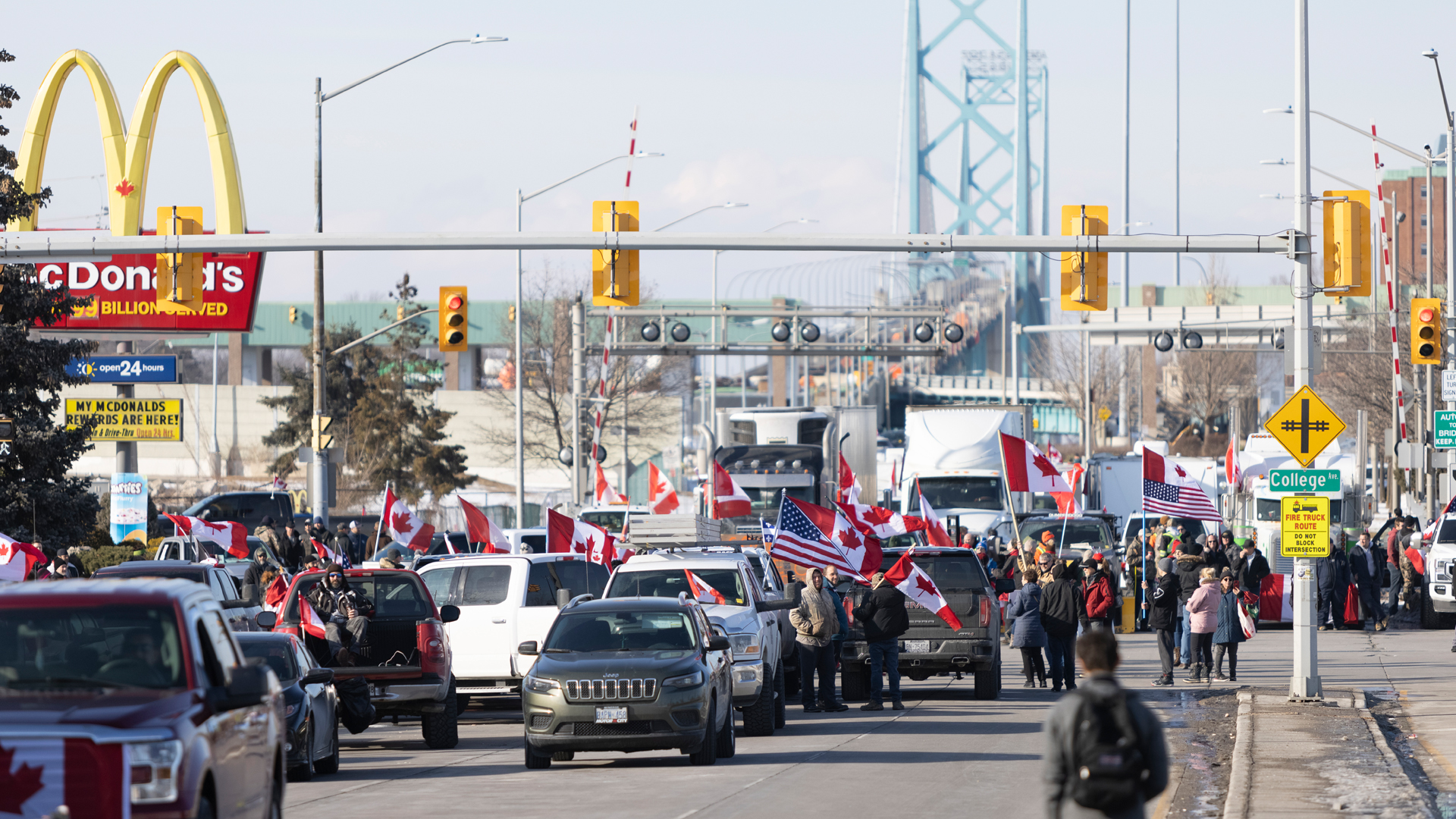
(Version française disponible ici)
In late March, Joe Biden made his first trip to Canada as president of the United States. His speech to the House of Commons emphasized the importance of the Canada-U.S. relationship, noting that the countries’ interests are “fundamentally aligned.” In a joint statement issued at the end of the trip, Biden and Prime Minister Justin Trudeau made several commitments on issues of shared concern, the most controversial of which were measures to clamp down on refugee flows at unofficial border crossings.
The visit was a reminder of how closely Canada’s fortunes are tied to those of the United States. It was also a reminder of the political complexities involved in living next to a powerful neighbour.
The recently released Rouleau Commission report provides a rare inside look into how the federal government attempts to navigate this delicate relationship. The report’s most important conclusion is that the federal government was justified, if narrowly, in its decision to invoke the Emergencies Act in response to the convoy protests that descended on Ottawa in January and February of 2022. But the report also contains important insights into just how integrated Canada’s fate is with that of the United States, and into the very real risks associated with friction between Canada and the U.S. on matters of social and economic policy.
READ MORE FROM THE SERIES
The “failure of federalism” at the siege of Ottawa was primarily a failure of governance
Peaceful assembly rights should not protect protests that cause fear of violence
Ottawa was the epicentre of the convoy protests, but demonstrations also occurred at other sites across the country, including at key border crossings. Commissioner Paul Rouleau found that the stakes of the convoy demonstrations escalated dramatically when the Windsor-Detroit border crossing was blocked by protesters in early February.
The Ambassador Bridge is Ontario’s most economically important border crossing. Even temporary closure has highly significant effects on the Canadian and the U.S. economies. When high-level American officials, including Biden’s top economic adviser, Transportation Secretary Pete Buttigieg, and ultimately President Biden himself, picked up the phone to express concern about the border closures, discussions of invoking the Emergencies Act kicked into high gear in Ottawa.
After speaking to Brian Deese, then-director of the U.S. National Economic Council, Finance Minister Chrystia Freeland reported in an email that, “They are very, very, very worried. If this is not sorted out in the next 12 hours, all of their northeastern car plants will shut down. He said that he supposed this proved the point we had made previously to them about how closely integrated our economies are. (He did not seem to see this as a positive.)”
[wd_hustle id=”20″ type=”embedded”/]
Freeland was referring to negotiations she had been leading through much of 2021 seeking an exemption from Buy American legislation under consideration in the United States Congress. Commissioner Rouleau explained that “a key part of her argument was that the United States needed Canada as much as Canada needed the United States. She emphasized that Canada was a reliable trading partner, and that the Canada-U.S. relationship was one that the Americans could depend on.”
The conversations with American officials were a turning point in the federal government’s discussions about whether to invoke the Emergencies Act. Faced with widespread economic losses flowing from the border closures, as well as ongoing unrest in Ottawa and elsewhere, invoking the Emergencies Act emerged as a real possibility, not only as a way to clear the protests but also as a way of demonstrating to the Americans that Canada is a dependable trade partner.
The report emphasizes the close relationship between Canada and the United States in a second way. Leaders of the convoy protests received considerable financial support from private donors – to the tune of tens of millions of dollars. Most of those funds originated in Canada, but substantial sums also flowed across the border from the United States. In short, Canada’s border is not only porous where trade is concerned, but the health and vitality of Canada’s democracy is closely linked to political developments in the United States, among them the rise in populism.
For better or for worse, the well-being of Canada and the United States is closely intertwined. The Rouleau Commission report shows the delicate balance that Canadian politicians must strike in making decisions in areas of common concern. It also underscores that the Canada-U.S. relationship is not confined to the official level. Social trends flow across borders and shape the politics of both countries. We should take advantage of these insights in reflecting on the wisdom of the political positions Canada adopts in a range of contexts, and in strategizing about how best to secure Canada’s democracy in the face of rising populism globally.
This article is part of the Lessons from the Rouleau Commission special feature series.










